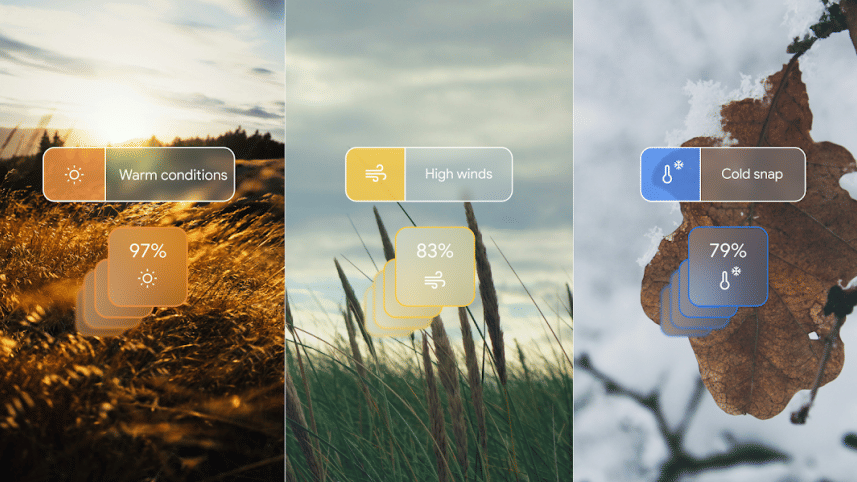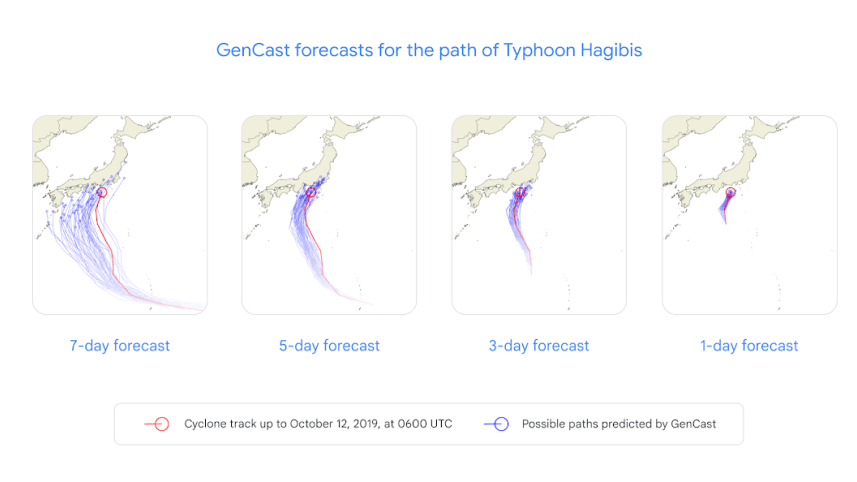Google launches GenCast for accurate weather forecast

Google has recently unveiled GenCast, an AI powered weather forecasting model capable of delivering highly accurate forecasts, including predictions for extreme weather events, up to 15 days in advance, according to a recent blog by Google DeepMind.
The announcement, detailed in a study published in Nature journal, highlights GenCast's ability to surpass the performance of traditional models, including the European Centre for Medium-Range Weather Forecasts' (ECMWF) ENS system, a global benchmark in weather prediction.
According to the blog, GenCast leverages advanced diffusion AI technology, the same generative model type used for breakthroughs in image and video creation, but tailored to Earth's spherical geometry. By incorporating four decades of historical weather data from ECMWF's ERA5 archive, the model has been trained to generate complex probability distributions of future weather scenarios with unprecedented resolution (0.25°). Unlike deterministic systems that offer a single best estimate, GenCast utilises ensemble forecasting, producing multiple scenarios to capture forecast uncertainties more effectively.

To evaluate its accuracy, Google tested GenCast on weather data from 2019 after training it on pre-2018 records. The results demonstrated that GenCast outperformed ECMWF's ENS system in 97.2% of 1,320 forecast combinations and was particularly superior for lead times exceeding 36 hours. Its ability to predict extreme events, including heat waves, high winds, and tropical cyclones, proved significantly more reliable, as per Google's blog.
Using Google Cloud TPU v5 hardware, the model generates a full 15-day ensemble forecast in just eight minutes. This efficiency contrasts sharply with traditional physics-based systems like ENS, which require hours of processing on supercomputers with tens of thousands of processors.
According to Google's blog, the model also demonstrates potential beyond emergency preparedness. Its improved wind power forecasting could enhance renewable energy reliability, aiding the global transition to sustainable energy sources. In preliminary experiments, GenCast outperformed ENS in predicting wind power generation across global wind farms, showcasing its utility in optimising energy resources.
Google has positioned GenCast as part of its growing suite of AI-powered weather tools, which include other models such as NeuralGCM, SEEDS, and Google DeepMind's AI-based deterministic medium-range forecasting systems. These models are integrated into platforms like Google Search and Maps to provide real-time insights into weather patterns, flooding, and extreme heat.



 For all latest news, follow The Daily Star's Google News channel.
For all latest news, follow The Daily Star's Google News channel.
Comments